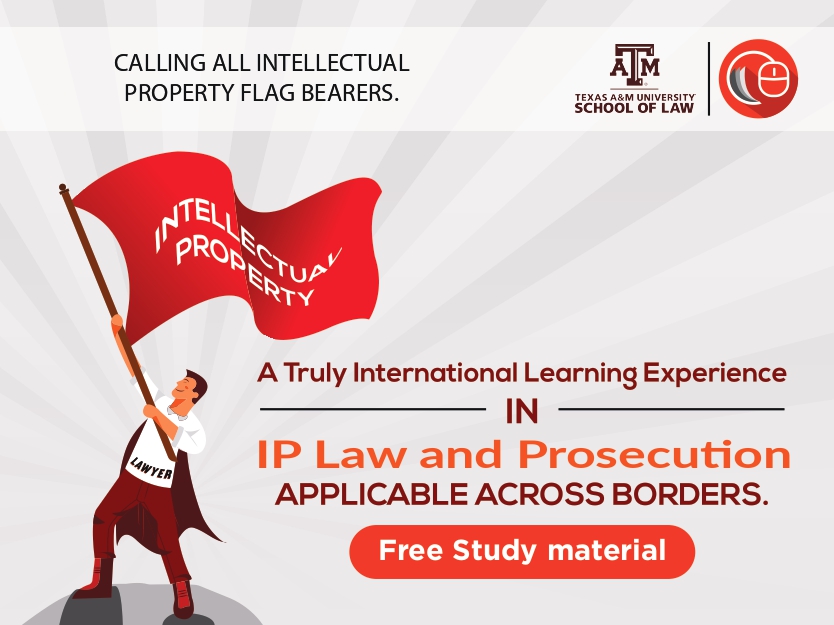This article is written by Nihar Ranjan Das who is pursuing a Certificate Course in Intellectual Property Law and Prosecution from LawSikho.
Table of Contents
Introduction
Search engines, which is also a web-based program that enables the user to search and identify information in a database as per the keyword or character searched by the user. It is used specifically for finding particular websites on the World Wide Web. Some popular examples of search engines are: Google, Yahoo and MSN.
The working principle of all the search engines for the Internet is as similar as what Windows have done for personal computers. Both have done the same thing by allowing inexperienced users to access the information. As far as search engines are concerned, this benefit may come at a hefty price of violating the copyrights of thousands of website creators.
During this process, a new search engine visits a website that promotes a particular commercial product or service. The search engines copy the site into its database and in the background, it actually crashes the site’s server by making that site inaccessible to any other internet users and when the same commercial product or service is searched in a subsequent occasion the displays two other items including the particular searched item. When the owner of that crashed website complains about the same, it is informed by the search engines that, the site was crashed due to the site owner’s improper setup as per the parameter. So the website owner has the only remedy left is, to alter the site’s software to block future search engines from cataloguing their sites.
The owner of the websites may also have alternative ways to take action against those search engines for the infringement of copyright, to persuade search engines to be more responsive to the above-mentioned issues.
Copyright Protection and its requirement
Copyright protects the original work of an author or the owner of the Copyright, which is fixed in a tangible medium from being copied without any permission from the copyright owner. As a result of this protection, the copyright holder gets the compensation for use of their works in any medium. However, the primary focus of the copyright is to promote the progress of Science and innovative Arts by securing the original work of the author or the owner, the exclusive rights connected with their respective writings and creative works which will benefit the public.
The existing Copyright Law is not efficient enough to provide effective protection for certain original works such as digital transmission works on the internet, which are not actually envisioned when the existing Copyright Laws are enacted. As we know the Copyright Act protects the literary works which are printed in a magazine or in any print media. Similarly, website also resembles the printed books or magazines. As the Copyright Act protects the authors for the literary work that appears on printed pages, it also protects the right of authors in their graphic works.
There is a copyright in all original work literature or graphical representation on the website. In some instances when a website which contains various information that is not itself copyrighted, such as feedback or reviews or any statistics collected from various public sources, there may be a copyright which always protect in the original manner in which the website collects, arrange and present that information to the desired users in the website.
Search Engines and Copyright Infringement
“There shall be no reason to throw out copyrights just because you are on Internet, must have to deal with it.” – James Grady
Internet is a global medium which connects people across the world, so in the 21st century, it will be extremely useless and void without the internet. And then the entry of the lord of the internet, commonly known as ‘Search Engines’, also referred as the face of the world wide web. We can easily see a search engine’s web page in the home screen of a person’s personal computer. The search engines connect the readers and viewers with the authors of the original work on a regular basis, but do they have the actual authority to do the same? This is the actual reason which has brought many legal disputes and law suits against the search engines across the world.
But before that we must understand why search engines should be liable, let’s discuss the logical explanation:
Identification is much easier
Millions of users regularly use the World Wide Web. It shall never be easy to locate someone who has uploaded any content over which he has no rights. Also, internet allows the users to maintain their profile as an anonymous profile. It is the truth that search engines locate a lot of information and make them available when it is required by any user but at the same it is also highly responsible for illegal content distribution.
Targets on Money-spinning
When someone will file a law suit against any person or any corporation for infringement of copyright, he will definitely seek monetary damages for such an offence. Search engines are actually multi-billion dollar companies. They make money in each and every minute. So it is very obvious that the offended person shall going to look for profitable targets in which search engines are liable to fulfil the same.
Legal Aspect
The Copyright Act, 1957 on its amendment in the year 1994 acted very vaguely about holding the search engines liable. We can easily interpret the Liability from certain sections as mentioned herein below:
Section 51(a)(ii)
This section clearly said that: “Copyright within a work shall be deemed to be infringed only if any person, without any license granted by the author or owner of the copyright or the Registrar of the Copyrights under this Act or in contravention of the conditions of a license so granted or of any condition imposed by a competent authority under this Act-permits for profit ‘any place’ to be used for the communication of the work ‘in public’ where such communication constitutes an infringement of the copyright in the work unless he was not aware and had no reasonable ground for believing that such communication to the public would be an infringement of copyright.”
Here in this provision, ‘any place’ refers to the computer or any electronic device by which the internet can be used and ‘in public’ promptly refers to the Internet only.
To know more about Fair use please visit
Is the defense of Fair Use applicable to search engines?
A search engine may try to avoid the cost and complexity of licensing and liability for any possible copyright infringement by using the affirmative Defense of Fair Use. This defense allows the infringing party to avoid any sort of liability for activity which shall otherwise constitute a copyright infringement.
This doctrine first appeared in the year 1841 in the matter of Folsom v. Marsh, though the term Fair Use didn’t make its appearance until 28 years later. It was actually fashioned by the Judges to create some sort of balance in the author’s right to compensate his original work against the public’s interest in the widest possible of ideas and information.
In the US laws, the doctrine was actually codified with the enactment of the Copyright Act, 1976. The provision mentioned in § 106 of the Copyright Act, clearly stated the exclusive rights to a Copyright Owner. § 107 of the Copyright Act provides the privilege to make the “Fair Use” of any copyrighted work. However, § 107 also mentions that: Notwithstanding anything contained in Section 106, the fair use of a copyrighted work, including such use by way of reproduction, for any purpose such as criticism, comment, news, reporting, teaching, scholarship, research, etc. is not counted as the infringement of copyright. While determining such use made of a copyrighted work in any particular case shall include few factors, such as:
- The purpose and character of the use, also include whether such use is of any commercial nature or for any non-profit educational purposes;
- The nature of the copyrighted works which is being used;
- The amount and substantiality of the portion used with respect to the copyrighted work as whole; and
- The effect of use in the potential market or the value of the copyrighted work.
If a work is unpublished, it shall not itself bar a finding of fair use, but those finding must be made upon while considering the above mentioned factors.
Case Laws
In the matter of Tips Industries Ltd. V. Wynk Ltd. and Another, on 23rd April, 2019, it is clearly mentioned that:
Whether the use of the Plaintiff’s Repertoire by the Defendant’s customers shall be considered as a “fair use” under Section 52(1)(a)(i) of the Act?
The Defendants in its defence have raised the provision of under Sections 52(1)(a)(i) and Section 52(1)(b) of the Act and have contended that their activities do not amount to infringement of Plaintiff’s copyright in any manner.
It is also further submitted on behalf of the Defendants that: permitting a customer to retain an electronic copy of a sound recording copy for their personal use or enjoyment on the WYNK application constitutes “fair dealing” with such work for private or personal use, and does not constitute an infringement of copyright.
It is further submitted that such storage is similar to a member of the public making a copy of a song/sound recording for his personal use/enjoyment thereof.
Conclusion
The search engine abstracts violate a website creator’s copyright, which also depends on both the qualitative and quantitative amount of material copied from the website. Websites usually vary in both its content and size. So it is not so easy while determining the quantitative similarities between an abstract and its respective websites. It shall be only feasible on a case-by-case basis.
Also, the analysis of fair Use, shall not be limited to those four factors mentioned in the provision of the Copyright Act. While evaluating the factors of Fair Use an extremely important consideration done by most of the courts has been the public interest served by use of those copied material and by doing the copy of the work itself. Courts have recognised the fact that there are situations in which the copyright owner’s interest in a maximum financial return must be subordinated to the greater public interest in the development of art, science, and industry.
If the search engines while facing claims of copyright infringement, they can opt for an alternate defence which could be that the Website owners allow to the copying of their work. Such a defence is based on the doctrine of Estoppel. A Web site owner’s long-standing allowance to the copying of his work may be sufficient to prove one of four Estoppel elements very easily.
References
- https://www.lawteacher.net/free-law-essays/copyright-law/a-balanced-view-on-search-engine-liability-for-copyright-infringement.php
- https://indiankanoon.org/doc/1718389/
- https://copyright.gov.in/Documents/CopyrightRules1957.pdf : The Copyright Act, 1957
Students of Lawsikho courses regularly produce writing assignments and work on practical exercises as a part of their coursework and develop themselves in real-life practical skill.
LawSikho has created a telegram group for exchanging legal knowledge, referrals and various opportunities. You can click on this link and join:
 Serato DJ Crack 2025Serato DJ PRO Crack
Serato DJ Crack 2025Serato DJ PRO Crack











 Allow notifications
Allow notifications


